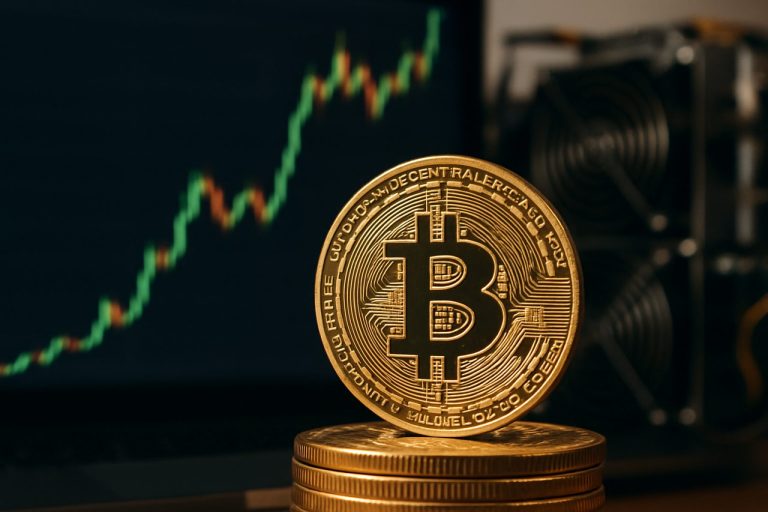Why New Hampshire’s Bold Bitcoin Move Is Reshaping State Finance in America—Will Your State Follow?
New Hampshire now leads the nation with a state-backed Bitcoin reserve to counter inflation. See why experts predict more states will join in 2025.
- $36.2 trillion: Total U.S. national debt as of May
- 5%: Maximum portion of New Hampshire’s eligible funds investable in Bitcoin and precious metals
- 16 states: Have introduced/are exploring similar Bitcoin reserve bills
- 21 million: Maximum number of Bitcoins that will ever exist
State finance has entered a new era. Last month, New Hampshire made headlines as the first U.S. state to authorize a strategic reserve in Bitcoin. In an audacious break from tradition, lawmakers handed state officials the power to move up to 5% of certain reserve funds into Bitcoin or precious metals—an unprecedented effort to defend taxpayers from inflation and federal overspending.
With the U.S. Treasury reporting the national debt topped $36.2 trillion in May, and interest payments on that debt expected to balloon to $1 trillion annually by 2026, New Hampshire’s move has ignited debate from Wall Street to Main Street. Many see this as a masterstroke of fiscal risk management, while others wonder: Could this spark a domino effect across America?
Q: What makes New Hampshire’s Bitcoin reserve unique?
Unlike speculation, the law focuses on prudent, long-term investing. Only assets with a provable, fixed supply and a market cap of $500 billion or more (currently only Bitcoin qualifies) can join the reserve. All holdings must be stored with secure, U.S.-regulated custodians, providing strict oversight and minimizing risk.
This isn’t New Hampshire’s first sabbatical from the financial mainstream. Since 2017, the state has paved the way for crypto innovation: exempting virtual currency from money transmitter rules, laying the groundwork for blockchain-governed corporations, and proposing specialized blockchain court dockets. Through this continued commitment, New Hampshire is rapidly earning a reputation as a haven for digital asset pioneers and prudent investors alike.
Q: How does a Bitcoin reserve protect against inflation?
American families continue to face sticker shock on everything from eggs to rents. One reason: nearly 40% of all current U.S. dollars have been printed since 2020, leading to a surge in the M2 money supply. This “easy money” policy has enriched some, but devalued the dollar for everyone else.
Bitcoin’s fixed limit of 21 million coins means it cannot be devalued by central bankers. Gold, with its 5,000-year legacy, has long served as a reliable store of value. Together, these assets offer a buffer against dollar declines and hedge against high inflation, a strategy endorsed by modern portfolio theory and now written into New Hampshire state law.
Q: What’s the catch—Is Bitcoin’s volatility a threat to taxpayer funds?
Bitcoin is known for price swings, but over the last decade, its average annual returns have consistently hit double digits. By capping the allocation at 5%, New Hampshire limits exposure but gains upside and much-needed diversification. When paired with gold and traditional assets, the result is a more resilient and adaptive reserve—designed for today’s uncertainty.
How-To: Can Other States Replicate New Hampshire’s Approach?
Momentum is building. As of March, sixteen states—including big players like Texas and Florida—were already moving toward similar Bitcoin reserve laws. Bipartisan support shows this isn’t a Red or Blue issue; it’s about protecting taxpayer dollars from the side effects of Washington’s fiscal choices.
Groups like the Satoshi Action Fund provide model language, educational resources, and roadmaps to help state leaders navigate the complex process. Add to this the community-building work of projects like the Blockchain Council, and it’s clear that state-by-state momentum is unlikely to slow.
Q: Why does this all matter right now?
History shows that when governments face debt crises, they print more money, eroding purchasing power and punishing savers. States can’t control federal monetary policy, but by diversifying reserves into capped-supply assets, lawmakers hope to shield their budgets—and their citizens—from the storm.
This isn’t theoretical. New Hampshire has already set the model. Will your state be ready before it’s too late?
Take action: Is your state protecting its financial future?
- Learn more about Bitcoin and blockchain from CoinDesk and Blockchain.com
- Contact your local representatives about digital asset reserve legislation
- Stay informed on federal debt updates at the U.S. Treasury
Checklist: Preparing Your State for the Future
- ✅ Evaluate state-level reserve diversification policies
- ✅ Engage with pro-innovation advocacy organizations
- ✅ Demand fiscal transparency and inflation-hedging strategies
- ✅ Encourage smart, bipartisan solutions to economic uncertainty










